 Iran’s Attack on Israel
Iran’s Attack on Israel
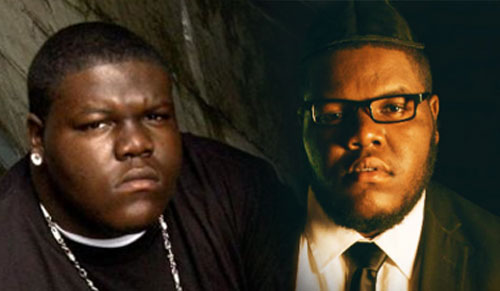

13 min read
His name is Nissim – which means miracles in Hebrew. An apt description of his life.
Seward Park is a neighborhood in southeast Seattle. Visit if you’re looking for Seattle’s orthodox Jews. Most of them live there. The neighborhood is chockfull of synagogues – including the oldest synagogue in Washington State – and other staples of Jewish life. At least it’s that way until you get to Rainier Avenue. Cross Rainier and you’re in the hood: drugs, poverty, crime, all the things you expect to find in America’s inner cities.
Nissim Black (formerly Damian Black and known in the rap world as D.Black) grew up in Seward Park a few blocks from Rainier Avenue. He lived close enough to the Jewish community to play basketball in a lot adjacent to one of the synagogues. But that was about it. Nissim wasn’t Jewish – not yet – and his world and his friends were on the other side of Rainier Avenue.
And Nissim – as his Hebrew name implies – believes in miracles.
As D.Black, Nissim was a rap artist on the move. His second release, Ali ‘Yah, sat for five weeks at number four on the CMJ hip hop charts. He toured the U.S. and was featured at many of the top festivals (SXSW, Capitol Hill Block Party, etc, etc). His video “Yesterday” was in regular rotation on MTV.
Not bad.
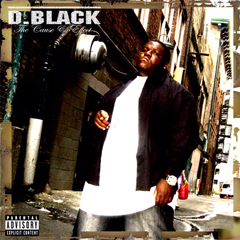 Music was in his blood. His father is Captain Crunch from the legendary Emerald Street Boys – think super old-school hip-hop a la “Rapper’s Delight” – and his mother was in the rap world as well. His mentor, Vitamin D – DJ, producer, MC, and often hailed as the foundation of Seattle hip hop – took him under his wing at an early age, showed him the ropes, and began recording him at age 13. He also benefited from an early association with hip-hop super-producer Jake One.
Music was in his blood. His father is Captain Crunch from the legendary Emerald Street Boys – think super old-school hip-hop a la “Rapper’s Delight” – and his mother was in the rap world as well. His mentor, Vitamin D – DJ, producer, MC, and often hailed as the foundation of Seattle hip hop – took him under his wing at an early age, showed him the ropes, and began recording him at age 13. He also benefited from an early association with hip-hop super-producer Jake One.
Miraculous? Probably not. Fortunate, yes. But sometimes good fortune comes at a price.
Try becoming king-of-the-hip-hop-hill when you’re surrounded by drug users.
Nissim’s home was a mess. His parents used drugs and sold drugs. Not an easy place to grow up – try becoming king-of-the-hip-hop-hill when you’re surrounded by drug users. Their home was like Grand Central Station for dealers and users. And drugs take their toll on families.
Nissim’s father was the first to go. His mother left him when Nissim was two. His stepfather wasn’t much better. It was a bad scene; when the dealers weren’t interested the cops were. The FBI raided their home in 1995 – Nissim was seven at the time – their house was battle-rammed; live firearms, AK-47s, his mother forcibly arrested. Imagine going through that at seven. (Nissim’s mother died of an overdose when he was 19. She was 37.)
Drugs are an ugly glow from the wrong side of Rainier Avenue. They fit the stereotype. Drugs and a challenging childhood make it difficult to see miracles.
But jealous homeboy-wannabe-nobodies make it impossible.
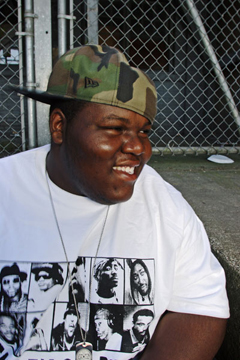 Nissim’s relationship with Jake One enabled him to get a song included on White Van Music, a killer compilation of hip-hop heavies featuring artists that Jake One produced. Nissim was one of three Seattle-area rappers featured on the album. When White Van Music hit, Nissim, or rather D.Black, was a nobody. But “God Like” – Nissim’s D.Black feature on the album – changed that. “God Like” was big. It didn’t make D.Black a household name, but it put him on the map. And it made him a somebody in Seattle. Being a somebody in a world of nobodies is cool, except that some of the nobodies want to be somebody, too. And those nobodies will put you down and start trouble.
Nissim’s relationship with Jake One enabled him to get a song included on White Van Music, a killer compilation of hip-hop heavies featuring artists that Jake One produced. Nissim was one of three Seattle-area rappers featured on the album. When White Van Music hit, Nissim, or rather D.Black, was a nobody. But “God Like” – Nissim’s D.Black feature on the album – changed that. “God Like” was big. It didn’t make D.Black a household name, but it put him on the map. And it made him a somebody in Seattle. Being a somebody in a world of nobodies is cool, except that some of the nobodies want to be somebody, too. And those nobodies will put you down and start trouble.
Another local rapper wanted attention. He needed someone to dis – as in disrespect – and D.Black fit the bill. D.Black was on the way up: insult him, provoke a response, and ride the wave up with him. The other rapper talked trash. Word got out.
So what?
An insult – especially from a nobody – means nothing in the real world, but not on the street. On the street you have to say something and put an end to the garbage, otherwise you are dissed. And dissed is bad. D.Black and friends found the rapper, threw a few punches, told him to quit it, and end of story.
Except it wasn’t the end of the story. Now the other rapper was dissed and that didn’t sit well with his people. So they started talking. And D.Black’s people started talking. And it escalated. And soon a friend of D.Black opened fire in a nightclub and the cops were called and the friend went to jail and D.Black was a wanted man.
So much for a promising music career.
But fear – fear of the cops, fear of jail – is a powerful motivator. And fear can sometimes penetrate the pettiness of the street. The other rapper called Nissim and they worked it out. Peace. The cops had their man and so they left Nissim and the rapper and everyone else alone. End of story. It was a close call and it got Nissim thinking. Maybe things didn’t have to be this way.
And maybe you can believe in miracles.
Nissim thought a lot about miracles and faith and religion and God. It was all around him. It wasn’t constant in his life, but it was there.
If anyone asked, Islam was his religion.
When he was seven his grandfather came to live with him. His grandfather was a Muslim and taught him the Koran, how to make blessings in Arabic, and the salat (Islamic ritual prayer performed five times a day). But his grandfather wasn’t destined to be a symbol of stability in his life. He was out on parole and in 1996 violated the terms of parole and was sent back to jail. Nissim didn’t know enough – and he was too young – to be an observant Muslim. But if anyone asked, Islam was his religion.
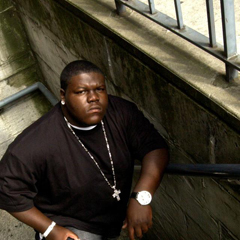 Enough people asked about his religion to give him a reputation as the local Muslim. It was enough of a reputation that a Seattle-based evangelical group recruited him – now 13 – for their summer camp. He loved that camp. He loved being out of the city and away from the drugs and the crime. It was a breath of fresh air. He was inspired and on a high and by the end of the summer a convert to Christianity.
Enough people asked about his religion to give him a reputation as the local Muslim. It was enough of a reputation that a Seattle-based evangelical group recruited him – now 13 – for their summer camp. He loved that camp. He loved being out of the city and away from the drugs and the crime. It was a breath of fresh air. He was inspired and on a high and by the end of the summer a convert to Christianity.
Now fast-forward to 20-year-old D.Black, rapper-on-the-rise. He thought about his life – his mother’s recent death from drugs, his good fortune in the music world, his close call with violence and the law, miracles good and bad – and he naturally thought about it from a Christian perspective. He thought about the factors that shaped his life, his experiences, and his troubles. He thought about God and faith and what it all meant. And he had questions – not necessarily big life-changing questions – but good questions:
If Jesus was Jewish, why aren't Christians Jewish? And shouldn't we still observe the commandments of the “Old Testament” to show God how much we love Him? I mean, He commanded them, didn’t He? And which religion came first: Islam, Christianity, or Judaism?
Good questions. He looked online. Google led him places. To a lot of places. He looked everywhere and was open to everything. He read and researched and thought. What’s up with the Old Testament? Is it true? It seems like it is.
But what about Jesus?
Okay. So Nissim became a messianic Jew: a practicing Jew and a believer in Jesus. And that was comfortable because he didn’t want to give up on Jesus. He thought that if you give up on Jesus you burn in hell.
And who wants to burn in hell?
But the more you learn, the more questions you have. And Nissim had a lot of questions. He was studying all the time.
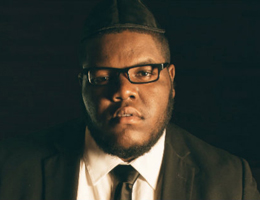 Nissim today
Nissim today
He went to his biological father. Since the time Nissim’s mother had left him, his father had cleaned up his act and was on his way to becoming a Christian theologian (today he is a professor of Christian thought at a number of colleges in the Seattle area).
“What’s up with Christmas and Easter? Weren’t they originally pagan holidays?”
“Yes that’s true,” his father told him. “But they have been sanctified.”
Not good enough. Nissim dropped Jesus and the Christian holidays. His practice and belief were now Jewish. Great. Except nothing is ever that easy.
His practice and belief were now Jewish. But his wife was a hardcore Christian.
Back when Nissim was in high school, he met his wife. She was with him when his mother passed away; moving in with him and his family, grieving with them, and then moving Nissim out to get him away from the drugs and the madness. She was with him on his spiritual journey as well and he eventually discussed with her his discovery about the pagan holidays and his interest in the Torah.
But she could only go so far. She was a hardcore Christian, from a strong evangelical background. She came from a close family and not being with them for the holidays was a difficult idea for her.
But he was persistent.
He convinced her to study. They cracked open the books, asked questions, and searched online. His persistence paid off. Not only did his wife agree to join him on his journey in Jewish observance, she took the lead and pushed him to consider an orthodox conversion. And she convinced her sister and her sister’s husband to join them as well.
Now there were four people growing in Jewish observance together. Quite a miracle.
Nissim’s second album, Ali ‘Yah, came out at that time. He was a messianic Jew when the album was recorded but had abandoned Jesus about six months after its release. He was also studying with a rabbi and working toward conversion. He wanted to study and grow and get on with conversion. He no longer wanted to wade knee deep in the muck and mire of entertainment international.
But a deal is a deal and he had to tour to support the album. Someone paid for the studio time, pressing, distribution, PR, the whole nine yards, and he wanted a return on his investment. It was only fair. So Nissim agreed to tour. But on the condition that he wouldn’t get paid – except for touring expenses – and in return for not taking any money he wanted to observe Shabbat and the holidays on the road.
Deal. His management went for it – who wouldn’t? – and Ali ‘Yah was a great success. For everyone except Nissim.
With the tour behind him, Nissim and crew went into hibernation to begin the long arduous process of conversion. It was a multiyear process and culminated in a massive double re-wedding paid for in full by the Seattle Jewish community.
And that was that. Nice story. Happy ending. Everyone is Jewish and life is wonderful.
Except that Nissim wasn’t working and his family was growing. You can’t live on passion. His brother-in-law told him to get back into music. His wife told him to go back into music. It seemed like everyone told him to get back into music. But he didn’t want to do it. The music world is no place for a nice Jewish boy. He didn’t believe the hype. He didn’t need to. And he didn’t need the fake-flattery-nonsense-aura of celebrity. He was beyond that.
Kids listen to rap stars. They don’t listen to their parents or teachers.
But music had benefits, too. It wasn’t all bad. He had power. And in particular, he had the power to do good with music. Kids listen to rap stars. They don’t listen to their parents or teachers. Call it the power of influence.
What to do? He didn’t know. So he didn’t do anything. And he waited.
Then his son got a fever. For a day, then two days. Then five days. And then they were in the hospital and it was serious. The doctors ran tests and concluded it was meningitis.
There was nothing Nissim could do but pray and hope for a miracle.
So he did. He went home and prayed. He prayed for his son and for health and for life and for everything that’s important. He prayed for clarity and guidance.
DO YOU HEAR ME? HELLO. I NEED HELP. WHAT ARE YOU TRYING TO TELL ME, AND WHAT AM I SUPPOSED TO DO? I DON’T GET IT.
Music? What about music? Should I do that? Was all that for nothing?
Maybe God will show me a sign? Maybe.
Nissim had a microphone in his home studio. He stopped using it when he stopped making music. And it stopped working. He fiddled with it from time to time but it was dead.
I can’t be an MC without a mic. Show me a sign.
He turned on the mic and it worked. Another miracle. Nissim looked up and laughed. It was that obvious.
Maybe. God can do anything, but He doesn’t usually send messages via broken recording equipment. Some people see images of the Virgin Mary in their toast, too. And some toasters are said to be possessed by the devil. Maybe. But you can’t call it a clear case of divine intervention.
His rabbi said the same thing. Miracles are wonderful things, but don’t rely on miracles. Think about your life and make your decision because it is the right thing to do. Don’t be a flake.
It was time to put his gifts back into action, to inspire, to be a positive role model, and to help others.
So Nissim thought about it. It was hard. But he decided it was time to put his gifts back into action, not for self-glorification, but to inspire, to be a positive role model, and to help others.
And with that the doors opened – miraculously. A record deal fell into his lap, invitations for music festivals came out of nowhere, the local press took a sudden interest in him, and he recorded a new album.
Nissim's rabbi, Rabbi Simon Benzaquen, cannot overstate how important he feels Nissim's new music is. "Nissim is accomplishing two extremely important things with his new album," Rabbi Benzaquen says. "America's Jews and African-Americans should be natural allies. We have both overcome so much and share so much. Nissim is an important bridge in bringing us together. And what's more, Nissim's music transcends the standard bravado of rap. He is reclaiming the music's natural poetry."
Do you believe in miracles? Nissim does. He sees them everyday. Are they as big as the sea splitting or Elvis coming back from the dead?
No. But they are big enough.
Visit Nissim’s website www.nissimofficial.com and follow him on Twitter @nissimofficial and Facebook Facebook.com/nissim.music.
